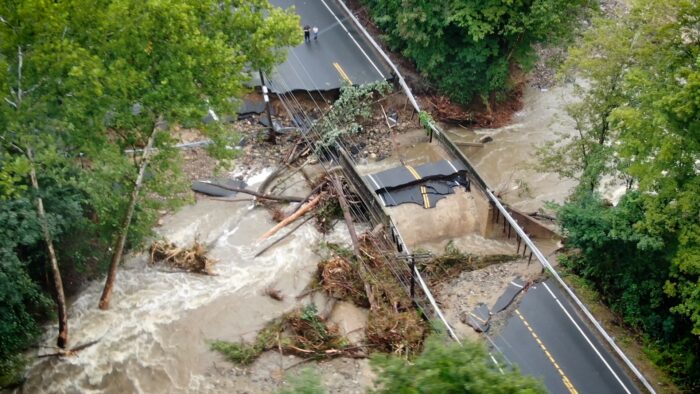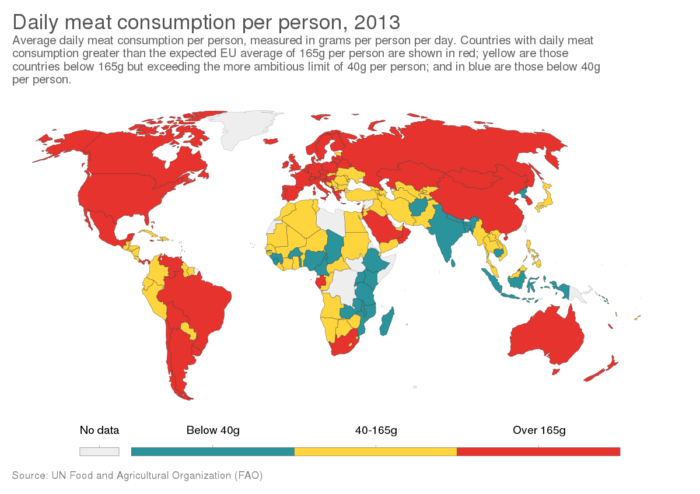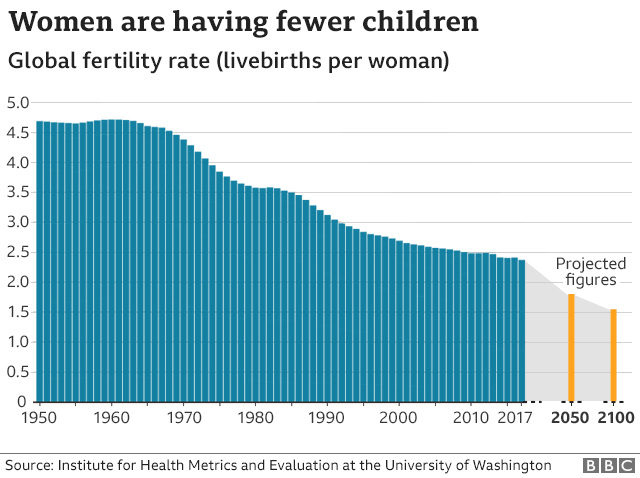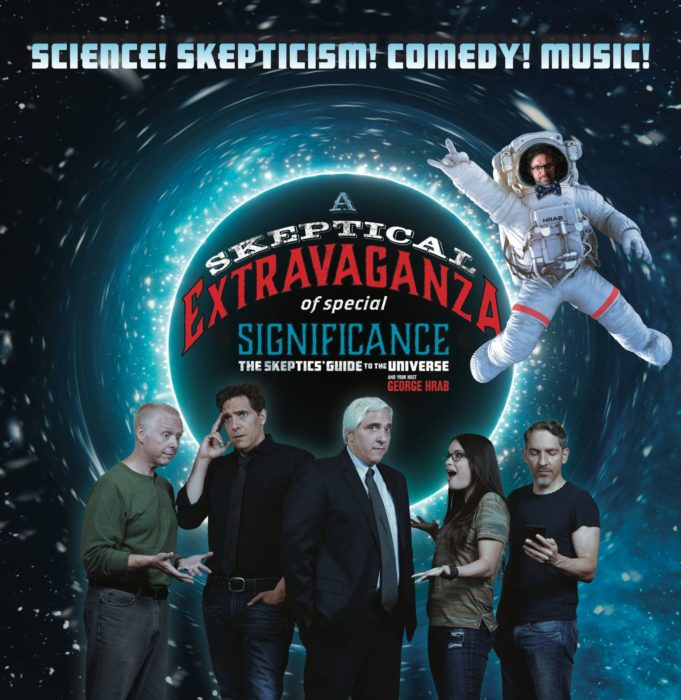Sep 16 2024
Flooding is Increasing
 Last month my flight home from Chicago was canceled because of an intense rainstorm. In CT the storm was intense enough to cause flash flooding, which washed out roads and bridges and shut down traffic in many areas. The epicenter of the rainfall was in Oxford, CT (where my brother happens to live), which qualified as a 1,000 year flood (on average a flood of this intensity would occur once every 1,000 years). The flooding killed two people, with an estimated $300 million of personal property damage, and much more costly damage to infrastructure.
Last month my flight home from Chicago was canceled because of an intense rainstorm. In CT the storm was intense enough to cause flash flooding, which washed out roads and bridges and shut down traffic in many areas. The epicenter of the rainfall was in Oxford, CT (where my brother happens to live), which qualified as a 1,000 year flood (on average a flood of this intensity would occur once every 1,000 years). The flooding killed two people, with an estimated $300 million of personal property damage, and much more costly damage to infrastructure.
Is this now the new normal? Will we start seeing 1,000 year floods on a regular basis? How much of this is due to global climate change? The answers to these questions are complicated and dynamic, but basically yes, yes, and partly. This is just one more thing we are not ready for that will require some investment and change in behavior.
First, some flooding basics. There are three categories of floods. Fluvial floods (the most common in the US) occur near rivers and lakes, and essentially result from existing bodies of water overflowing their banks due to heavy cumulative or sudden rainfall. There are also pluvial floods which are also due to rainfall, but occur independent of any existing body of water. The CT flood were mainly pluvial. Finally, there are coastal flood related to the ocean. These can be due to extremely high tide, storm surges from intense storms like hurricanes, and tsunamis which are essentially giant waves.

 I am a lifelong dog owner, and like many dog owners am often impressed with how smart my dogs have been. They pick up on subtle body language and non-verbal cues, they seem to understand specific words, and they are capable of successfully communicating their wants and desires. My latest dog is an Australian shepherd, who is both smart and willful. Any attempt at training him to do what we want results in him equally training us to do what he wants. An of course we love them and the emotional connection is real and bidirectional. Dogs and humans have evolved a symbiotic relationship.
I am a lifelong dog owner, and like many dog owners am often impressed with how smart my dogs have been. They pick up on subtle body language and non-verbal cues, they seem to understand specific words, and they are capable of successfully communicating their wants and desires. My latest dog is an Australian shepherd, who is both smart and willful. Any attempt at training him to do what we want results in him equally training us to do what he wants. An of course we love them and the emotional connection is real and bidirectional. Dogs and humans have evolved a symbiotic relationship. What killed off the dodo? Humans first arrived at Mauritius island in the late 1500s. They found on this island fat flightless birds who nested on the ground and were a convenient way to restock their ship’s food supply. Within 80 years the dodo went extinct. But hunting was not the only, and maybe not even the primary, cause of their extinction. Rather it was likely something that the humans brought with them – invasive species. One species in particular tends to follow humans every where we go, causing havoc on any local ecosystem not already adapted to them – rats.
What killed off the dodo? Humans first arrived at Mauritius island in the late 1500s. They found on this island fat flightless birds who nested on the ground and were a convenient way to restock their ship’s food supply. Within 80 years the dodo went extinct. But hunting was not the only, and maybe not even the primary, cause of their extinction. Rather it was likely something that the humans brought with them – invasive species. One species in particular tends to follow humans every where we go, causing havoc on any local ecosystem not already adapted to them – rats. As we are in an election year in the US, there seems to be only one thing on which there is broad agreement – this upcoming election will be consequential. So allow me to share some of my musings about the process of electing our political representatives.
As we are in an election year in the US, there seems to be only one thing on which there is broad agreement – this upcoming election will be consequential. So allow me to share some of my musings about the process of electing our political representatives. I am currently in Dallas Texas waiting to see, hopefully, the 2024 total solar eclipse. This would be my first total eclipse, and everything I have heard indicates that it is an incredible experience. Unfortunately, the weather calls for some clouds, although forecasts have been getting a little better over the past few days, with the clouds being delayed. Hopefully there will be a break in the clouds during totality.
I am currently in Dallas Texas waiting to see, hopefully, the 2024 total solar eclipse. This would be my first total eclipse, and everything I have heard indicates that it is an incredible experience. Unfortunately, the weather calls for some clouds, although forecasts have been getting a little better over the past few days, with the clouds being delayed. Hopefully there will be a break in the clouds during totality. This is one of those complex questions that comes up frequently when talking about related issues, and it’s always challenging to give a short answer. Often there are unknown or speculative elements to the analysis, which make it difficult to have an objective or definitive answer. What I would like to do here is mostly frame the relevant considerations and give my current understanding of the evidence, with possible caveats. Obviously this is going to be a quick overview of a lot of complexity – I see it more as a starting point than a firm conclusion.
This is one of those complex questions that comes up frequently when talking about related issues, and it’s always challenging to give a short answer. Often there are unknown or speculative elements to the analysis, which make it difficult to have an objective or definitive answer. What I would like to do here is mostly frame the relevant considerations and give my current understanding of the evidence, with possible caveats. Obviously this is going to be a quick overview of a lot of complexity – I see it more as a starting point than a firm conclusion. Since many of my regular commenters are intent on talking about their Wordle scores in the comments, you can now use this thread rather than my Topic Suggestions. Please put the following phrase at the top of every comment to avoid spoilers (fresh comments appear on the homepage, so people can see them even if they are not reading this post).
Since many of my regular commenters are intent on talking about their Wordle scores in the comments, you can now use this thread rather than my Topic Suggestions. Please put the following phrase at the top of every comment to avoid spoilers (fresh comments appear on the homepage, so people can see them even if they are not reading this post). I often discuss the fact that the world’s population is set to approach 10 billion people by 2060 or so. Right now we are approaching 8 billion. This is a potentially serious issue, mainly for food security. We are already using most of the arable land on the planet, and will need to produce more food on the same, or hopefully less, land if we are to sustain these populations without devastating ecosystems (more than we already have). We also need to produce enough energy and goods while dealing with that whole global warming thing. So many people might find it interesting that some scientists are warning about a
I often discuss the fact that the world’s population is set to approach 10 billion people by 2060 or so. Right now we are approaching 8 billion. This is a potentially serious issue, mainly for food security. We are already using most of the arable land on the planet, and will need to produce more food on the same, or hopefully less, land if we are to sustain these populations without devastating ecosystems (more than we already have). We also need to produce enough energy and goods while dealing with that whole global warming thing. So many people might find it interesting that some scientists are warning about a  For the next two weeks I will be traveling to New Zealand and Australia to attend two skeptical conferences:
For the next two weeks I will be traveling to New Zealand and Australia to attend two skeptical conferences: In 1984 science fiction writer Isaac Asimov wrote
In 1984 science fiction writer Isaac Asimov wrote 




